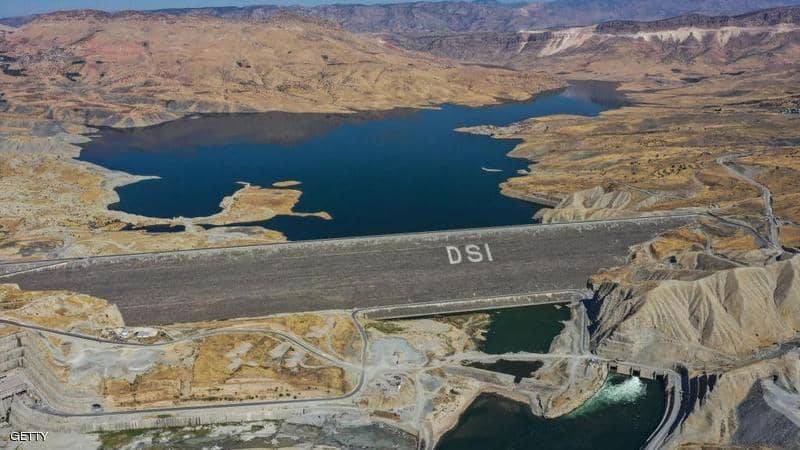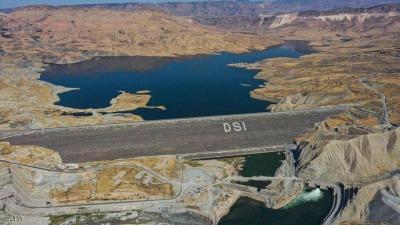An Iraqi official stated on Sunday that there has been a significant decrease in the water levels of the Tigris and Euphrates rivers, reaching about 50 percent. He indicated that a delegation from Baghdad will visit Turkey next month regarding this matter. The official Iraqi News Agency quoted the spokesperson for the Ministry of Water Resources, Ali Radi, saying: "This year is considered a year of water scarcity, with a clear reduction in the Tigris and Euphrates rivers, whose levels have dropped by more than 50 percent."
Radi added that there has been a significant reduction in water levels at the Dokan, Darbandikhan, Sirwan, and Diyala dams. He mentioned external factors contributing to the water shortage in Iraq, stating: "There are other technical factors related to the expansion of countries in constructing storage dams and irrigation projects, and these factors have impacted Iraq's water revenues."
He noted that Iraq, like other countries worldwide, has been affected by climate changes, including rising temperatures and the retention of rain, which has led to decreased water revenues. Despite these challenging conditions, the Iraqi official stated that "the water needs for this season and the upcoming winter season have been secured from the good water reserves available in the reservoirs and lakes."
Radi mentioned that the Ministry of Water Resources plans to complete water discussions next month, with an Iraqi delegation scheduled to visit Turkey at the beginning of the month regarding this issue. He added that numerous meetings have been held with both the Turkish and Syrian sides concerning the water file and that an Iraqi delegation's visit to Turkey is anticipated to continue discussions regarding Iraq's share and water releases in the Tigris and Euphrates rivers, as well as preparing for a joint tripartite meeting involving Iraq, Turkey, and Syria about sharing the burden during the water scarcity period.
An Iraqi delegation had visited Turkey last June to discuss the water file and review the facilities and water reserves at the Ilisu dam, which Turkey is building on the Tigris River. The Tigris River, along with the Euphrates, is a lifeline for many Iraqis, supplying numerous water stations and used for irrigation along their banks. Iraq has been experiencing a reduction in the water levels of the Tigris and Euphrates rivers for years due to decreased rainfall during winter and the dams constructed by Turkey on both rivers. The latest of these dams is the Ilisu dam, which is the largest on the Tigris River. In addition to Turkey, Iraq suffers from Iran's policies that restrict access to many of the smaller rivers that used to flow into its territory.




